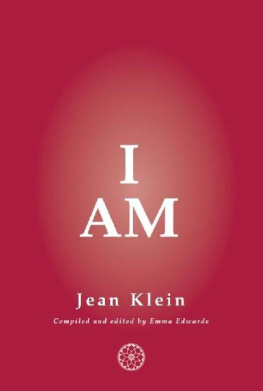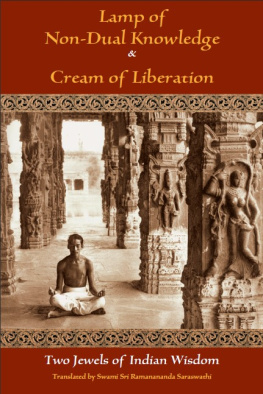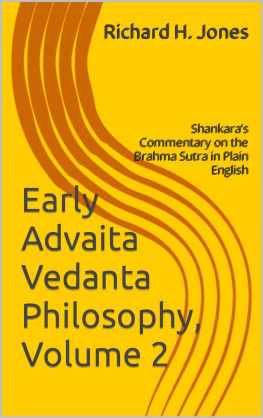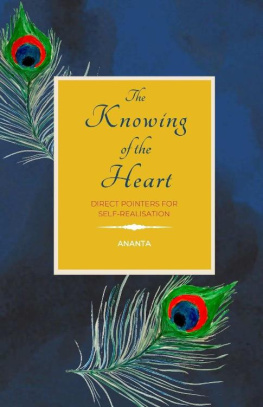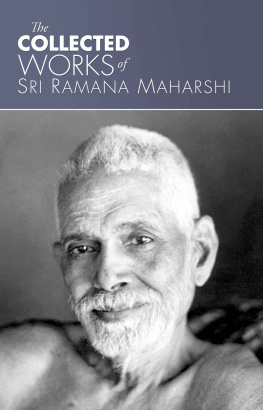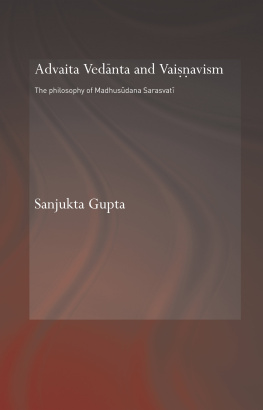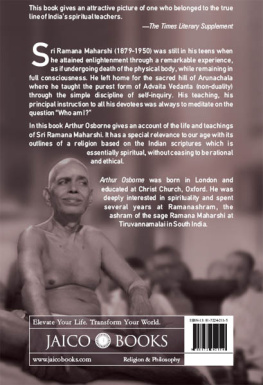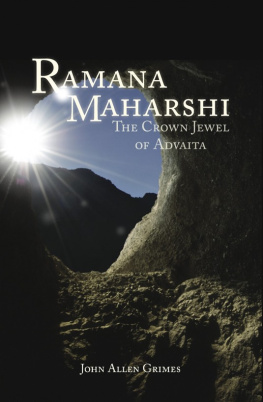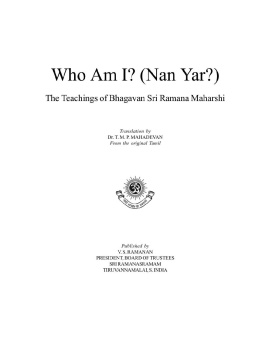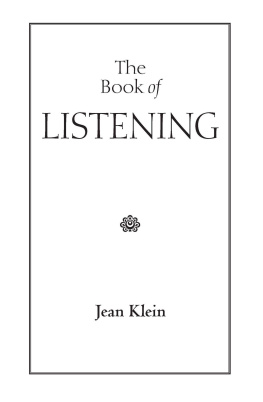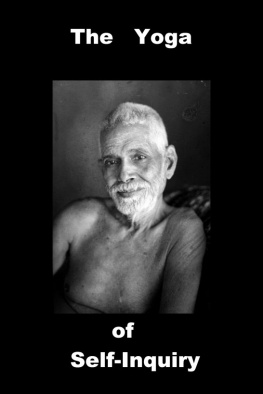Jean Klein - I Am
Here you can read online Jean Klein - I Am full text of the book (entire story) in english for free. Download pdf and epub, get meaning, cover and reviews about this ebook. City: Oakland, year: 2006, publisher: Non Duality Press, genre: Religion. Description of the work, (preface) as well as reviews are available. Best literature library LitArk.com created for fans of good reading and offers a wide selection of genres:
Romance novel
Science fiction
Adventure
Detective
Science
History
Home and family
Prose
Art
Politics
Computer
Non-fiction
Religion
Business
Children
Humor
Choose a favorite category and find really read worthwhile books. Enjoy immersion in the world of imagination, feel the emotions of the characters or learn something new for yourself, make an fascinating discovery.
- Book:I Am
- Author:
- Publisher:Non Duality Press
- Genre:
- Year:2006
- City:Oakland
- Rating:5 / 5
- Favourites:Add to favourites
- Your mark:
- 100
- 1
- 2
- 3
- 4
- 5
I Am: summary, description and annotation
We offer to read an annotation, description, summary or preface (depends on what the author of the book "I Am" wrote himself). If you haven't found the necessary information about the book — write in the comments, we will try to find it.
I Am — read online for free the complete book (whole text) full work
Below is the text of the book, divided by pages. System saving the place of the last page read, allows you to conveniently read the book "I Am" online for free, without having to search again every time where you left off. Put a bookmark, and you can go to the page where you finished reading at any time.
Font size:
Interval:
Bookmark:
Be Who You Are
Who Am I?
Beyond Knowledge
Living Truth
Open to the Unknown
Transmission of the Flame
The Ease Of Being
Translations also available in French, Spanish, Italian, German and Chinese
I
AM
Jean Klein
compiled and edited by Emma Edwards
NON-DUALITY PRESS
Jean Klein Foundation
PO Box 22045
Santa Barbara, CA 93120
United States
jkftmp@aol.com
http://www.jean klein.org
First published 1989 by Third Millennium Publications
This edition copyright Non-Duality Press
August 2006 & 2007, 2012
Copyright Emma Edwards
All rights reserved. No part of this book may be reproduced, stored in a retrieval system, or transmitted by any means, electronic, mechanical, photocopying, recording, or otherwise, without express written permission from the publisher.
ISBN 978-0-9551762-7-2
Non-Duality Press
Salisbury, PO Box 2228
SP2 2GZ
United Kingdom
www.non-dualitypress.org
Some of you who read this book may have a kind of dj-vu in places. This is because an earlier work Neither This Nor That I Am (Watkins 1981) has been completely revised and woven into these pages. I felt the earlier work needed re-writing; this book I Am is a clearer pointer to truth.
J.K
I am a mother. I am a son. I am a doctor. I am a lawyer. Im musical. Im tall. Im short. Im American. I am French. I am Jewish. I am Christian. I am black. Im gay. I am celibate. Im depressed. Im happy. Im married. I am this. I am that.
We know ourselves only in relation to something. We only know a qualified I. When we say I am the mind demands What am I? I am what? This book is about the I am prior to all qualification, what we are before the intrusion of the mind.
How can we know what cannot be qualified? It calls for a new kind of knowing, not a knowledge which comes from the accumulation of facts and experience. We may have absorbed every book published and experienced every adventure and it would not bring us one breath nearer to knowing I am. So this new knowing begins by giving up looking for it in experiences and secondhand information. Giving up does not mean we become passive; on the contrary, in letting go of our mechanical learned responses we are open to our full potential, our creativity, a dynamic new realm. The natural state of the relaxed brain is multidimensional attention. It does not need viewpoints, data, opinions, memory to be alert. When all these directions cease, an organic, non-directed wakefulness remains. This is the threshold of I am.
This book is therefore about that which cannot be represented, objectified. It is about our real nature, truth, a truth that has nothing to do with the accumulation of facts. It is causeless, autonomous and only in this sense real. It needs no agent to be known and is its own proof. It is not having knowledge but immediate knowledge, knowing as being, and as such is not objectifiable. It is closer to us than all thought or feeling. It is our fundamental ground.
Since the I am is not an abstract, a concept or idea, the teaching of this truth is not a transmission of conceptual knowledge. The understanding of these dialogues does not occur in the mind. Of course the words, acting on the verbal level, bring the mind to greater clarity so that it has a clear geometrical representation of what is beyond it and also realizes the boundaries of its comprehension. But the fullness and real significance of these words lies in the fact that they do not arise from thinking but from the silence behind thought, the I am. The answers appear in this silence, the openness that is present in the absence of a personal entity, and they are permeated with the perfume of their source. In this lies their transformative power: they arise out of and point to our real nature, our autonomy, at every moment. They are thus a constant challenge, a challenge to belief, education and common sense. They free us from the reflex to take ourselves for a somebody, a thinker, a seeker, a doer, a sufferer.
If these sayings are not meant to be comprehended in the usual sense of the word, by the mind; if we are not to bring our past knowledge and experience to bear on the interpretation, how should we read this book?
As we read poetry. When reading poetry we dont look for agreement or disagreement, the critical mind is suspended in order to let the impact of the poem make itself felt. When we read poetry, we are poets. We remain passively alert, letting the words be active, listening to how they echo on every level, how they sound, how they move in us, how we are moved by them. We wait attentively, without conclusion, for the poem to find us. This alert openness to all the resonances of the psychosomatic structure is vital to the truth-seeker. Like the poet, the truth-seeker lets go of his personality so that he is open to thoughts, feelings and reactions. Like the poet, the truth-seeker welcomes these as gifts, as pointers in the exploration.
Only in this openness can the silence in the words come home to us, for openness is the I am, our real nature. The words are merely a catalyst to the real formulation which takes place in the reader.
E.E.

W e must investigate, get to know ourselves, what we generally understand to be our body and psyche. Most of the time we live in reaction and double reaction, for example, when we react in anger we may also try to remain calm and collected. We try many different escape routes. By such means we constantly limit our possibilities and turn in a vicious circle.
The only way out is to simply observe. This allows us to take note of our physical reactions, our mental attitudes and patterns and our motivations at the exact moment they appear. It involves no evaluation, no analysis which is based on memory. At first the observer might find it difficult to be impersonal, to free himself from evaluating. He tends to emphasize the object and thus become its accomplice. Later, however, observing itself is emphasized and becomes more natural, more frequent. There comes a time when a neutrality installs itself between the observer and what he observes, and both poles lose their driving force. There is silence, we no longer nourish the conditioned object.
What is the primary motivation for our actions?
At certain moments, when alone, we feel a great lack deep within ourselves. This lack is the central one giving rise to all the others. The need to fill this lack, quench this thirst, urges us to think and act. Without even questioning it, we run away from this insufficiency. We try to fill it first with one object then with another, then, disappointed, we go from one compensation to another, from failure to failure, from one source of suffering to another, from one war to another. This is the destiny to which a large part of humanity devotes itself. Some resign themselves to this state of being which they judge to be inevitable. Others at first deluded by the satisfaction brought about by these objects come to realize that they give rise to a surfeit and even to indifference. Some are brought to take a closer look. The object fully satisfies us for a short time during which we are back in our intrinsic nature, fulfillment. At the moment of fullness there is no awareness of an object. Thus the object cannot be the cause of our experience. It is essential to come to know these moments of joy without object.
We habitually attribute a cause to joy, we turn joy into an object because memory links the two together, but in reality they are of two entirely different natures. Thus we realize that the object is consumed in the joy of our being.
Font size:
Interval:
Bookmark:
Similar books «I Am»
Look at similar books to I Am. We have selected literature similar in name and meaning in the hope of providing readers with more options to find new, interesting, not yet read works.
Discussion, reviews of the book I Am and just readers' own opinions. Leave your comments, write what you think about the work, its meaning or the main characters. Specify what exactly you liked and what you didn't like, and why you think so.

